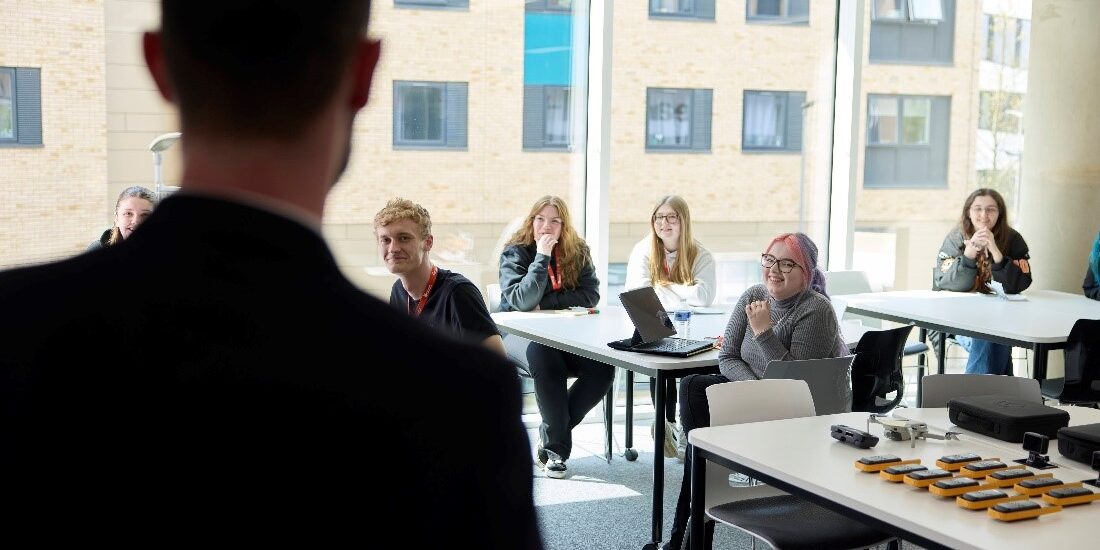Associate Professor in Criminal Justice & Procedure
Faculty of Business and Law

Law MPhil/PhD/PhD by Published works
Key Facts
-
Level
PostgraduatePG PhD
-
Duration
MPhil: Full time 12 months - 3 years, Part time 30 months - 5 years
PhD: Full time 2 years - 4 years, Part time 3 years - 6 years
PhD by Published Works: 1 - 2 years -
Starting
October, March
-
See Fees and Funding
-
See Fees and Funding
-
Waterside
Updated 09/04/2025
Updated 09/04/2025
Get in touch
For questions regarding study and admissions please contact us:
UK STUDENTS ENQUIRIES
study@northampton.ac.uk
0300 303 2772
INTERNATIONAL STUDENTS ENQUIRIES
Overview
This PhD programme at the University of Northampton with our Faculty in Business and Law, offers the opportunity to undertake advanced legal research. If you are a graduate in Law or similar discipline, this Law MPhil/ PhD / PhD by Published Works programme offers an excellent route to expand your knowledge and research skills. A PhD in Law entails writing a thesis over a period of three, or at most four years (four to six years for part-time students). Students in our PhD programme receive excellent training and work under the supervision of academic supervisors. Our doctoral students become members of a lively academic community which plays a significant role in the education of lawyers and law teachers from around the world. Successful defence of the final thesis will provide the researcher with the highest qualification that any UK university can award and offer an excellent opportunity to move into higher management positions within the industry.
Find out more about the following Research Institutes and Centres:
- Centre for Sustainable Business Practices (CSBP)
- Centre for Global Economic and Social Development (GESD)
- Centre for Sustainable Futures
- Institute for Public Safety, Crime and Justice (IPSCJ)
The closing dates for applications for the October intake is 1 August, and for the March intake is 11 December.
Highlights
- Immerse yourself in sustained, in-depth study into a specific topic
- Stimulate real change while you work across our core fields in terms of both legal and policy issues
- Join a community of established researchers and contribute to a diverse intellectual environment
- Receive research training in law and social sciences
- Regular research seminars, conferences and research activities led by our Research Centres and the Graduate School.
Entry Requirements
As a minimum, applicants should hold or be predicted to achieve the following UK qualifications or their international equivalent:
- an upper second-class or higher undergraduate degree with honours in a relevant subject to the proposed area of research
or
- a Masters degree in a relevant subject to the proposed area of research
Course Content
Fees and Funding
2025/26 Tuition Fees
Fees quoted relate to study in the Academic Year 25/26 only and may be subject to inflationary increases in future years.
Doctor Of Philosophy Degrees
- UK – Full Time: £5,700
- UK – Part Time: £2,845
- International – Full Time: £16,350
- International – Part Time: £7,640
Doctor of Philosophy Degrees by means of Published Works
Including: Doctor of Philosophy (PhD) by means of published works.
- UK – Part Time: £3,600
- International – Part Time: £7,840
Staff
Careers and Employability
UON Research students will pursue a range of career paths after completion of their doctorate degree. Many will take up academic posts or pursue postdoctoral research of one sort or another. Some will enter legal practice as solicitors, barristers, advocates, or judges; others will become legal advisors, advising government departments, non-governmental organisations, and private companies.
The University of Northampton has an excellent careers service. Our Careers and Employability Service is dedicated to equipping students with the skills to thrive, adapt and innovate in our ever-changing world.
Facilities
Our PhD students have access to exceptional research facilities such as:
- Opportunities for research collaboration with staff and students
- Dedicated PhD study area with computer and printer in the Learning Hub
- Spacious individual and group working space and discussion areas
- Well-equipped library with access to academic e-books, journal articles and learning resources for on-site and off-site study
- Excellent social groups for student meetings and engagement
- Library and Learning support for PhD students
- Skills support for PhD students
- Teaching and Research Assistant opportunities should you meet the requirements







